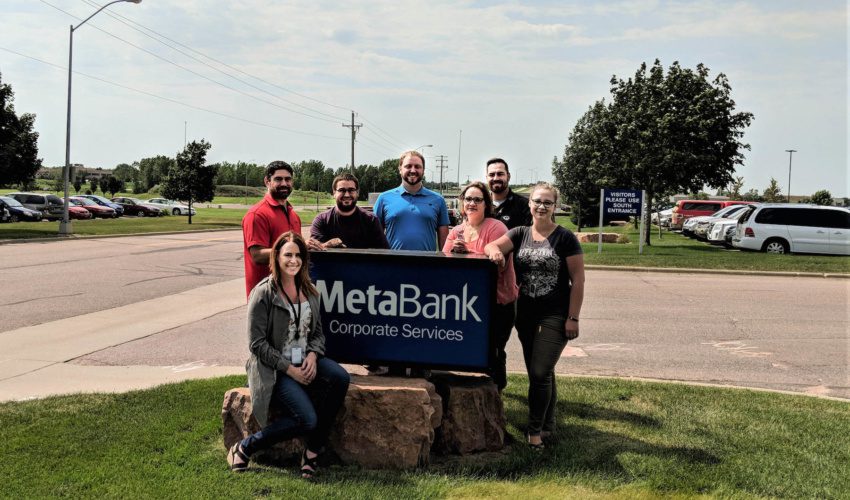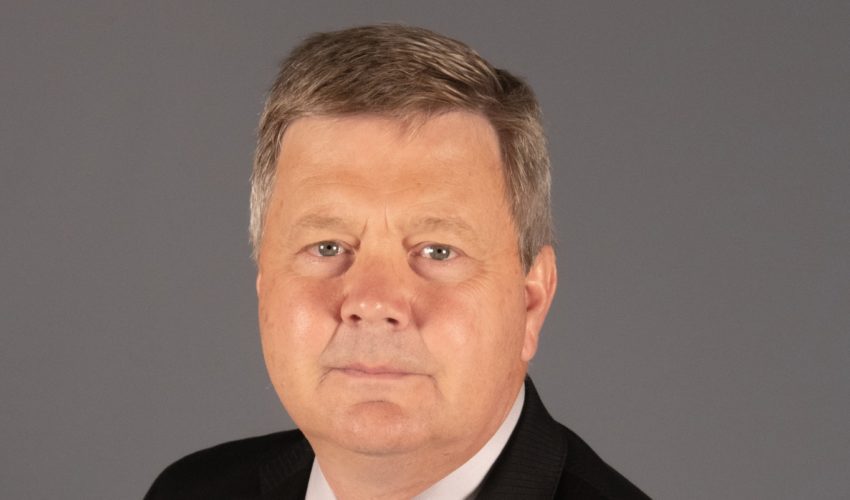Avera cancer research leader sees opportunities to bring ‘exciting new treatment options’
Aug. 12, 2020
This paid piece is sponsored by South Dakota Biotech.
While the medical and bioscience communities have mobilized around research for COVID-19, intense work around cancer research hasn’t slowed.
At the Avera Cancer Institute, those efforts now have a new leader.
Dr. John Lee joined the organization as chief medical officer for cancer research earlier this year.
Since 2016, Lee served as chief medical officer for ImmunityBio, an immunotherapy company, and senior vice president of clinical development for NantKwest, a clinical-stage natural killer cell immunotherapy company. In this role, he was responsible for all preclinical and clinical development from basic research to FDA application for all investigational products. He helped invent more than 20 patents and led in the professional licensing of three pharmaceutical products.
Earlier in his career, Lee was a head and neck surgeon and an ear, nose and throat specialist and was involved in medical leadership for clinical trials in cancer care. He has held teaching positions for the University of South Dakota Sanford School of Medicine and Carver College of Medicine at the University of Iowa. He also has been a lead author and contributing author of numerous medical journal articles.
We caught up with Lee to learn more about his work and his vision for advancing it.
What attracted you to your new role at Avera?
Since I grew up in a small farming community and have had many family members struggle with cancer, it has always been my passion to deliver the best-known cancer care to rural areas and also offer the novel promising treatment options in the form of clinical trials to these same people. People from rural regions should get access to the same levels of care as those from densely populated areas. My past work with clinical care, basic science research and clinical trials for the nation fit well with Avera’s desire to provide this type of care to the footprint they serve. I look forward to helping bring these therapies across Avera’s footprint – from Pierre to Aberdeen, Mitchell, Yankton and Marshall – that have a potential to bring about more long-term responses and possible cures to patients close to home.
What areas of cancer research are you particularly drawn to?
Our body has the ability to detect and kill cancer cells using our immune system. This process happens normally on a daily basis. When cancer develops, it has evaded this immune clearance. Due to basic science, we now understand how to reverse this process and reuse the body’s immune response to remove cancer. These immune cancer therapies tend to offer an improved ability to clear cancer without the side effects and complications of chemotherapy. We would like to bring these novel immune therapies to the people of the region.
We used to hear a lot about cancer research advancement. How would you describe the overall state of things today? What kind of broad-based progress have we made?
There have been major advances in two main areas of cancer care over the last five years as a result of trials and research funding. These fall into two areas:
Genomic medicine: The ability to quickly sequence the genome changes that have happened in a cancer cell has allowed improvements in targeted treatment and detection based on an individual. New treatments based on a patient’s specific mutation are being tested and approved.
Immune therapy: Biologic and cell therapy is now becoming mainstay in many cancer types. These therapies offer the ability to use your body’s natural immune system to clear the cancer during therapy. Treatment with these agents tends to improve long-term complete response with toxicity compared to standard chemotherapy.
Is there an area of cancer research you feel is on the verge of breakthroughs that could be so-called game-changers?
Cellular immune – CAR-T-cells and natural killer cells – therapy has really revolutionized standard therapy for some leukemia and lymphomas. It is now expanding into treatment of solid cancers like melanoma, lung and many others. These therapies expand, retarget and then deliver your immune cells back to you like a blood transfusion. After infusion, the immune cells attack and in many instances clear the cancer.
Are there new options for treatment on the horizon for patients in Sioux Falls? Or anything recent that people might not be aware of?
Avera currently offers and has led the region in using CAR-T cells in the treatment of leukemia and lymphoma because the bone marrow transplant physicians have been part of the trial and now standard care treatment using CAR-T cells. We also have treated patients with head and neck cancer using T-cells. We are also pioneering the use of natural killer cells to treat cancer with plans to open these trial options for patients of the region in the next couple months.
Avera also has committed to sequencing advanced cancers using the most advanced genomic sequencing and then find treatments based on the specific mutations at a multidisciplinary genomic tumor board. They are also exploring using a genomic blood test to detect cancer earlier than it can be detected by radiology and before patients have symptoms in order to detect this cancer early.
Avera also has committed to helping improve patients with blood vessel narrowing such as found in peripheral vascular disease and is currently starting to treat patients with a technology discovered in South Dakota that may help these patients.
Are there opportunities you see for Avera to further advance its presence in cancer research? What might those look like?
I think there are great opportunities to bring these exciting new treatment options in the form of trials to the patients of the region and develop methods using virtual eCARE options to deliver these trials in the communities where they live and not just travel to Sioux Falls to get these options.
However, having spent time in pharma, I also feel we can be the place to develop these novel treatments if we continue to invest in biotech development right here is South Dakota. South Dakota and the surrounding region has a lot to offer as a place that would support biopharma development. Long term, we would like to not only perform the trials but also develop the clinical and scientific biopharma teams to create the therapies here.
Often research is a team sport – is that the case for you, as in are you bringing others with you to Sioux Falls or hoping to?
Yes, we will be bringing in team members and training current residents to run the clinical operations required to perform trials. We are also building the biopharma teams to compete successfully to attract new industry to this area.
Having been away in biotech development these past five years, I will say I really enjoy the people of South Dakota and love living here. It is good to be back!








